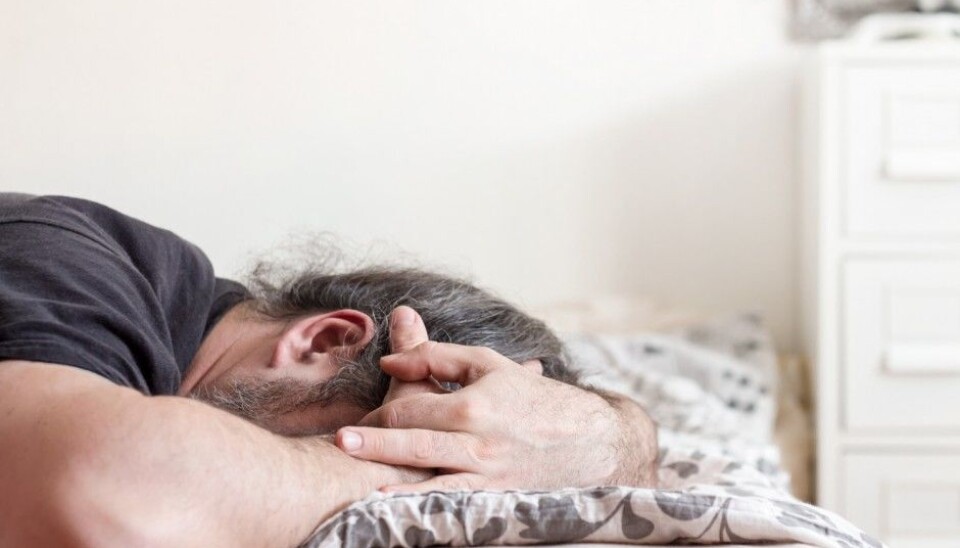
Young jobless males might expect poorer health in adulthood
A link between lack of work and health has been seen in Swedish men, even among those who later find employment.
Young men who are unemployed in the age group 16 to 21 report more health problems than others as the years go by.
They are more apt to suffer from headaches, stomach troubles, muscle pains and insomnia, according to a Swedish doctoral dissertation. Such problems can sometimes be linked to mental afflictions.
Plenty of research has already linked unemployment with deficient health compared to others, both in mind and body. This was seen, for instance, in a large international study published in the Journal of Applied Psychology.
But the Swedish PhD dissertation indicates that the damage can be lasting. However, in generall joblessness seem to only afflict men long-term – not women.
No help in getting a job
Around 1,000 persons in Northern Sweden were asked to report their somatic afflictions at ages 16, 18, 21, 30 and 42.
Nearly all ninth-graders in the city Luleå participated, and very many of them also responded to the last questionnaire, 26 years after entering the study.
This enabled researchers to ascertain that the association between unemployment at a young age and individual health issues persists, independent of a number of factors. Among these variables, they could investigate whether the men held jobs as adults, their parents’ professions, their individual educational pursuits and compare these against their health as teenagers. These variables did not change the picture.
However, as these were self-reported health problems, there could be differences among the participants in how they report them. Actually, a study conducted at the Norwegian University of Science and Technology has found that unemployed persons tend to report having better health than they actually enjoy.
Many young unemployed
In the Swedish study there were few who were unemployed initially as teens. But for the boys who were jobless their situation had an impact on their future.
The study started in 1981, so it is unclear whether the information from that time is still relevant for unemployed persons today. But finding jobs for youth remains a problem in Sweden, even though the rate for young persons has been reduced in recent years. Currently, 13 percent of Swedes aged 15-24 are out of work, according to Statistics Sweden.
It appears as if being a teenager or a young adult is a highly vulnerable period of person’s life, according to the Swedish researchers in an article in the European Journal of Public Health.
Yet the researchers also stress that they cannot contend that youth unemployment is the cause health problems.
There could be other conditions from childhood and further into life that is impacting the health of these men. For instance, unemployed young men are more prone to tobacco smoking and immoderate use of alcohol.
Nor have the researchers investigated what sort of jobs these men landed as adults. Perhaps they are temporary jobs or they can be low-paying, entailing economic problems, which also impact health.
Women still have the poorest health
Among women, no such link between unemployment while young and health problems was found when the researchers looked into their levels of education. Women are more likely to get a higher education than men. Higher education levels did not appear to help men who had been unemployed in their younger days.
Why are just men apparently affected by unemployment at an early age?
The Swedes don’t have a good answer for that.
Anna Brydsten, who just got her doctorate with work in this study, points to another possible explanation. Even though women’s health does not seem to be impaired by joblessness when they are young, this doesn’t mean that they are suffer fewer health problems than their male peers.
They tend to have more somatic afflictions than men.
Brydsten also says that Swedish women more often than men have poor working conditions.
“This is why women more often report poor health than men, despite their status as employed or unemployed,” she said in a press release from Umeå University.
Reference:
Anna Brydsten et al.: Youth unemployment and functional somatic symptoms in adulthood: results from the Northern Swedish cohort. European Journal of Public Health, vol. 25, no. 5, 15 March 2015. Doi: 10.1093/eurpub/ckv038. part of a PhD dissertation Arbetslöshet och ojämlikhet i hälsa. En livsloppsstudie i norra Sverige. Department of Public Health and Clinical Medicine, Faculty of Medicine, Umeå University, 2017
Translated by: Glenn Ostling







